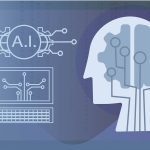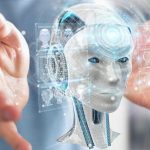Machine learning and artificial intelligence are increasingly finding a place in the media industry, yet such tools are still struggling to break into the mainstream. Media organisations must ensure their teams keep pace with these industry innovations, or they risk falling behind the pace of the digital revolution. Regulators and social media platforms alike seem to have, … [Read more...] about Turbocharging the newsroom: How AI Could Revolutionise the Fourth Estate
Artificial Intelligence
Learn about the latest developments in artificial intelligence and how it is transforming industries around the world. Our website offers insights and resources for understanding AI and its applications.
Why Using Artificial Intelligence in Clinical Trials Becomes the New Normal
In 1994, Dr. Kevin Hughes and his colleagues wanted to test a treatment for early-stage breast cancer in older women. Even though around 40,000 women in the US could qualify for this trial every year, it took Hughes and his team a whole five years to recruit 636 participants. Some time later, Mayo Clinic was planning another study involving breast cancer. The researchers relied … [Read more...] about Why Using Artificial Intelligence in Clinical Trials Becomes the New Normal
How AI/ML Based Applications Powered by Data Annotation Elevate Customer Experiences
The pandemic brought technological, logistical, and economic challenges for companies globally, leaving them scrambling to adapt. Amidst the chaos, organizations turned to video conferencing platforms such as Google Meet, Microsoft Teams, and Zoom to stay connected. New-gen technologies like Artificial Intelligence (AI) and Machine Learning (ML) supplemented human efforts to … [Read more...] about How AI/ML Based Applications Powered by Data Annotation Elevate Customer Experiences
Sentiment Analysis: Categories, Methods, and Use Cases
Public opinion significantly impacts people's willingness to interact with businesses and the brand's perception as a whole. 93 percent of customers agree that internet reviews affect their purchasing decisions, according to a Podium poll. After reading a few negative reviews, users might not give you a second opportunity. They won't look into whether or not the feedback was … [Read more...] about Sentiment Analysis: Categories, Methods, and Use Cases
The Problem of Bias in Artificial Intelligence
At present, the best AI tools we have at our disposal are considered weak and narrow - they can only accomplish specific tasks using a specific data set for them by their programmers. As a result, artificial intelligence is exceedingly susceptible to various forms of bias that can negatively impact its accuracy and performance. Bias is a serious issue for anyone interested in … [Read more...] about The Problem of Bias in Artificial Intelligence
What is artificial intelligence (AI)?
AI refers to the development of computer systems that are able to perform tasks that normally require human intelligence, such as recognizing patterns, learning from experience, and problem-solving.
AI systems can be trained to perform these tasks through the use of algorithms and machine learning techniques, which allow them to analyze and interpret data and make decisions based on that analysis. AI has the potential to significantly improve the efficiency and accuracy of many tasks, and is being applied in a wide range of industries and applications.
How is artificial intelligence used?
AI is used in a variety of industries, including healthcare, finance, retail, and transportation, to improve efficiency and productivity.
For example, in healthcare, AI can be used to analyze medical images or electronic health records to identify patterns and make diagnoses, while in finance, it can be used to identify fraudulent activity or optimize investment strategies. In retail, AI can be used to personalize customer experiences or predict demand for products.
What are some examples of artificial intelligence?
Examples of AI include self-driving cars, language translation software, and virtual assistants like Apple’s Siri or Amazon’s Alexa.
Other examples include chatbots that can handle customer service inquiries, predictive analytics tools that can forecast future outcomes, and recommendation engines that can suggest products or content based on user preferences.
What are the potential risks and benefits of artificial intelligence?
AI has the potential to revolutionize industries and improve our daily lives, but it also raises ethical concerns and the risk of job displacement. One concern is the potential for AI systems to perpetuate or amplify biases present in the data used to train them, leading to unfair or discriminatory outcomes.
There is also the risk that AI could be used to automate tasks or make decisions that have negative consequences for humans.
On the other hand, the benefits of AI include improved efficiency and accuracy, the ability to process and analyze large amounts of data quickly, and the potential to tackle complex problems that are difficult for humans to solve.
How can I learn more about artificial intelligence?
Datafloq offers a wide range of AI articles. There are many resources available for learning about AI, including online courses, books, and industry events.
Some popular online courses include those offered by Coursera, edX, and Udacity. There are also many books on AI that provide a broad overview of the field or delve into specific topics, such as machine learning or natural language processing.
Attending industry events, such as conferences or meetups, can also be a great way to learn about AI and network with others in the field. It is important to stay up-to-date on the latest developments in the field, as AI is a rapidly evolving field with many new advances and applications emerging all the time.






